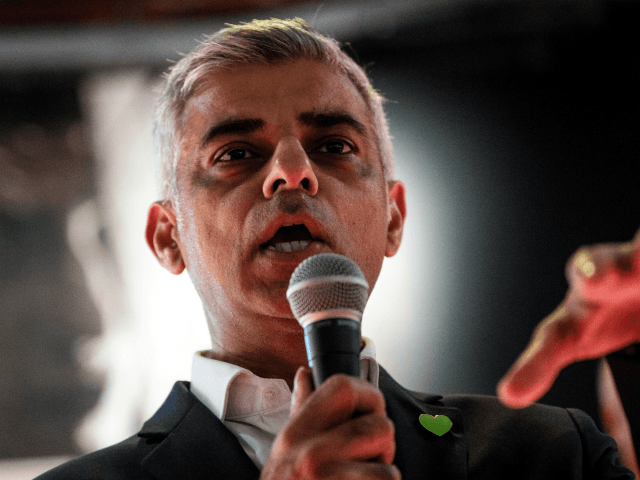London mayor Sadiq Khan has come out in support of a British slavery museum in the capital, an idea promoted by the socialist-progressive Fabian Society.
Mayor Khan said the presence of the museum would help “fight racism”, telling The Guardian: “It’s right and fair that all Londoners see themselves and their history reflected in our city’s museums and cultural institutions.
“Learning more about the uncomfortable nature of our city and our nation’s role in the transatlantic slave trade can serve to deepen our understanding of the past and strengthen our commitment to fight racism and hatred in all its forms,” the Labour politician added.
The United Kingdom is already home to the International Slavery Museum — in Liverpool — and while Mr Khan said he backed a museum “acknowledging Britain’s role in the slave trade” he did not state whether the museum would also pay tribute to the country’s work to end the Atlantic Slave Trade, notably through the work of abolitionist parliamentarian William Wilberforce and the Royal Navy’s West Africa Squadron.
The British also helped put an end to the enslavement of European Christians by the predatory Barbary States of North Africa through a number of dangerous naval missions, and to the enormous but little-acknowledged Arab slave trade in East Africa.
The London museum is the idea of the Fabian Society, the United Kingdom’s oldest left-wing think tank which avowedly “consists of socialists” and campaigns for a “classless society” and what it considers a “just” redistribution of wealth.
The Fabian Society seeks to realise its socialist agenda by stealth rather than revolution, as epitomised by the choice of name, “Fabian”, which the think tank’s website explains is derived from the name of the Roman general Quintus Fabius, who delayed his attacks on the Carthaginians under Hannibal and chipped away at their forces until they were weak enough for a decisive strike:
The name Fabian Society was explained in the first Fabian pamphlet which carried the note.
“For the right moment you must wait, as Fabius did most patiently, when warring against Hannibal, though many censured his delays; but when the time comes you must strike hard, as Fabius did, or your waiting will be in vain, and fruitless.”
Founded in 1884, it was engaged in the formation of Labour and “came to be a major force in the modernisation of the Labour party”, turning it into the progressive-globalist party that governed the United Kingdom under Tony Blair for a decade, with over 200 Fabians sitting in the House of Commons after his 1997 victory, many of them in the Cabinet.
Since removed from its original link on the far-left think tank’s website, an archive of the page “Famous Fabians” revealed the group proudly declaring in 2012 that “Every Labour Prime Minister, from Ramsay MacDonald to Gordon Brown, has been a member of the Society.”
Early figures in the society included Beatrice and Sidney Webb, who helped found the London School of Economics which continues to “work closely together” with the society, and the New Statesman magazine, which was recently embroiled in a scandal in which conservative philsopher Sir Roger Scruton’s reputation was falsely tarnished.
George Bernard Shaw was a founding director. The celebrated playwright and “leading light of the Fabian Society” once said that “Stalin is a good Fabian” and compared his movement’s message to Mussolini’s, writing that “we, as Socialists, have nothing to do with liberty” and that democracy itself was “incompatible with Socialism”.

COMMENTS
Please let us know if you're having issues with commenting.